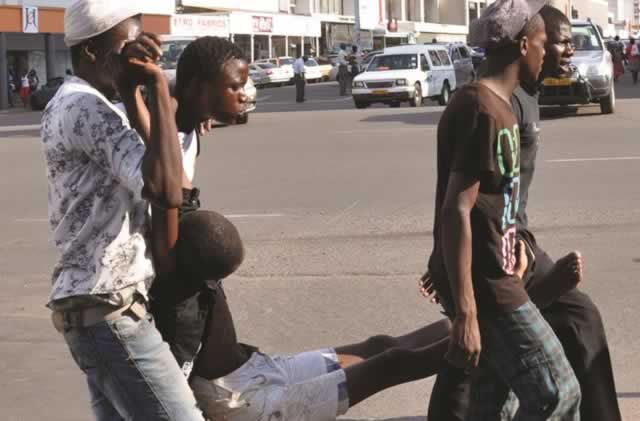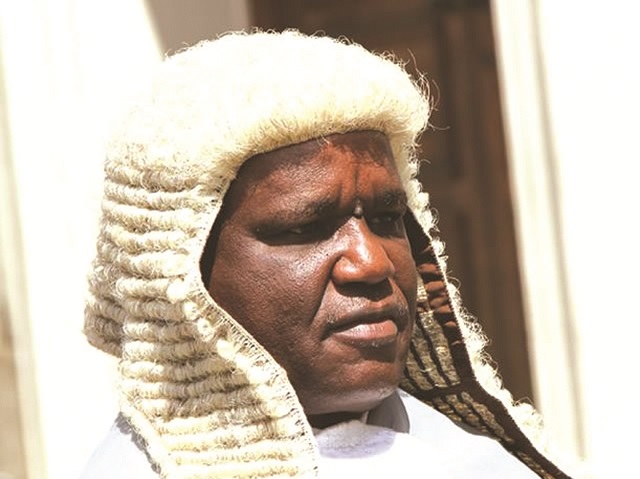Drunkenness mars festive season

Saul Gwakuba Ndlovu
The festive season is upon us, and with it are many causes of happiness and those of sadness.
We are by and large well acquainted with things and actions that generate pleasure and joy.
We need not discuss those associated with pleasure.
Seldom, however, do we analyse causes of sadness, sorrow, grief, want and loss.
Much of these negative factors are experienced by a large number of families during this season or shortly after celebration.
Some people associate pleasure and happiness with drunkenness, gambling, sexual immorality, particularly adultery and prostitution.
The Christmas period, and that is the festive season we are talking about, is celebrated to commemorate Jesus Christ’s birth.
Although it is a Christian occasion, it is observed by people of diverse religious persuasions, from Bahai Ullah’s to atheists as well as those who believe in God’s (Jehovah’s) existence and goodness but not in Jesus Christ’s godly birth or nature.
During this season, drunkenness most probably causes the worst and largest number of accidents, marital disruptions and financial losses.
It may be difficult (but not impossible) not to consume any alcoholic beverage at all but it is certainly not impossible to drink moderately.
The Roman Catholic Church does not prohibit its members from drinking beer, wines or any other spirituous beverages; but it very strongly admonishes moderation in their consumption of liquors.
That is so because the Christian religion’s cradle is Palestine, a wine-producing region, and a home to people to whom it is a tradition to drink wine as part of family meals. We have all read about how Jesus while still a boy changed water into wine at a wedding party at Cana, and how everybody had a whale of time thereafter.
The most important thing to observe is moderation. We must avoid eating and drinking excessively at any time and at all costs because that leads to financial bankruptcy, physical ill health in the form of constipation, heartburn, dyspepsia or all those conditions combined, resulting in high blood pressure, being overweight (even obesity), heart problems and or other ailments caused by over-indulgence.
Drinking in excess has not only adverse physical consequences, but usually, if not always, also gives rise to negative social effects such as violent behaviour resulting in crime that may lead to prosecution in law courts, and/ or in divorce, suicide or murder.
Thefts occur at a much higher rate during the festive season, and so do divorce causes such as adultery, shameful or embarrassing social behaviour or utterances, cruelty to or negligence of the children by one or both parents, and financial recklessness.
It is important that we should celebrate moderately because there is tomorrow to take care of. Today’s pleasuring should not result in tomorrow’s sadness. We should always create our good tomorrow’s socio-economic conditions today.
Road accidents claim a large number of lives in Zimbabwe during the Christmas period than at any other time of the year. That is because many motorists drink and drive, and some pedestrians drink and walk along or across highways.
Drunken pedestrians are very easy targets of muggers, conmen, robbers, pickpockets, rapists and murderers. It is most advisable to stay at home after taking a few drinks, especially during this season, and particularly at night when anti-social people prowl and wander around looking for victims to harm, rob or rape.
Motorists should all the time bear in mind that it is not only their lives that are in their hands but those of their passengers as well.
Not only those lives, but those of other motorists and their passengers. There are also pedestrians and stray livestock to keep an eye on.
Stray livestock as a road traffic accident causal factor need to be dealt with by all those concerned with the country’s daily administration.
We begin with village heads, headmen, chiefs, district administrators and the Zimbabwe Republic Police (ZRP). These comprise law enforcement personnel.
Those responsible for law enactment are councillors, Members of Parliament and Senators.
For law enforcement to be efficient, there has got to be effective laws, and for such laws to exist, councils, parliament and the senate have to be proficiently represented and efficaciously run.
We are discussing here the calibre of those representing wards (councillors), constituencies (MPs and Senators). The higher their calibre, the more relevant, reasonable and realistic will be their council by-laws to deal with livestock that are a hazard to road and even to rail traffic.
The current situation whereby livestock (cattle and donkeys) roam and wander across and along highways, unattended causing a great deal of concern to travellers without the ZRP lifting a finger is not acceptable.
The ZRP should act against the livestock owners especially in view of the large number of road-blocks the force has all over the country.
Meanwhile, village-heads, headmen and chiefs, supported by councillors, should be heard, loudly and clearly, telling the people in their respective areas to keep their livestock away from public roads and railway lines.
For several, if not many families, past festive seasons became unforgettable mourning occasions because of road accidents many of which were caused by sheer human errors and not mechanical, technical or weather factors.
Most of these human errors were a result of over indulgence in intoxicating beverages. If we could, each one of us realise that the consumption of intoxicants creates more sadness than happiness, more poverty than wealth, more social insecurity and instability than social security and stability, we could lead much healthier and happier lives all round.
Social scientists have established that some of the factors that generate sadness amongst human communities are caused by human beings themselves.
Those range from nakedness, hunger, illness, ignorance, accidents, exposure, denial of one’s right to associate freely, and the right to worship or not to worship as and when one wishes, and the freedom to express oneself as and when one wishes. We should acknowledge that happiness is by and large created by us. That is what they mean when they say “life is what you make it.”
We usually create environments that make us victims of negative factors, and one known way by which we do so is by the excessive consumption of alcoholic beverages, those destroyers of well-grounded love and everlasting peace, of lives of individuals and families, and of the welfare of communities and nations.
Saul Gwakuba Ndlovu is a retired, Bulawayo-based journalist. He can be contacted on cell 0734 328 136 or through email. [email protected]











Comments